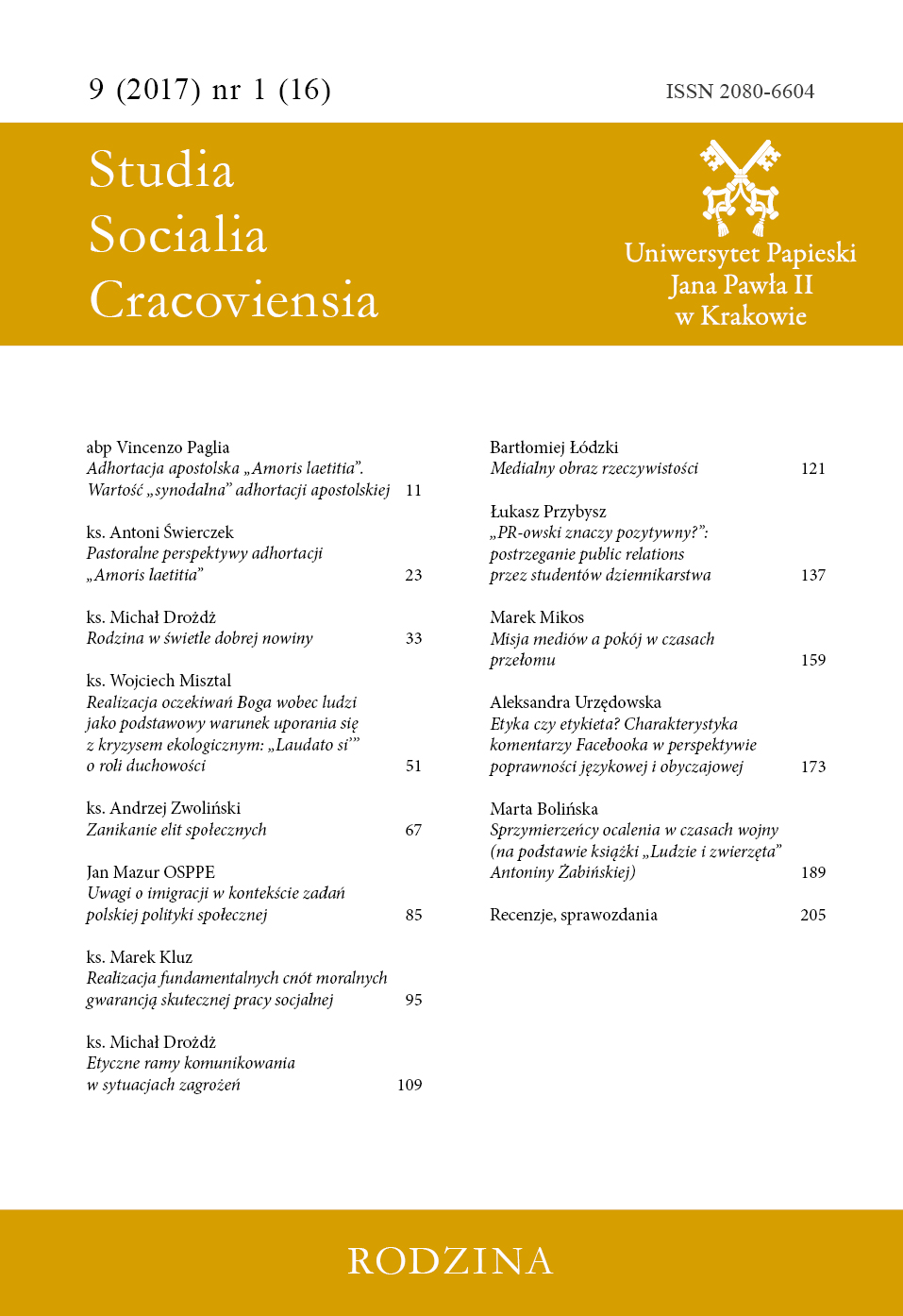Misja mediów a pokój w czasach przełomu
DOI:
https://doi.org/10.15633//ssc.2307Abstrakt
Na pytanie o misję człowieka na Ziemi chrześcijaństwo ma jasną odpowiedź. Tą misją jest głoszenie Dobrej Nowiny, z jaką przyszedł na Ziemię Jezus Chrystus. Z tego zadania, które jest jednocześnie ponad ludzkie siły i na ludzką miarę, nie jest zwolniony żaden człowiek. Jak skutecznie ma się z niego wywiązać chrześcijanin, spełniając zarazem zapisaną bezwarunkowo w Dobrej Nowinie zasadę miłości każdego bliźniego, poszanowania jego wolności, czynienia pokoju, głoszenia prawdy i sprawiedliwości? Jak to przesłanie ma przekazywać niewyznawcom, by mogło stać się podstawą spotkania i dialogu? Po uporządkowaniu odpowiedzi na te pytania w kontekście misji mediów skupiam się na zagadnieniu: jak powyższe ustalenia przełożyć na komunikację społeczną czasów przełomu. Pytam, jak do ponadczasowej misyjności mediów, której niezbywalnym warunkiem jest czynienie pokoju, ma się czas przełomu i walki porządków wartości, w którym żyjemy. Stawiam zagadnienie dopuszczalnych i niedopuszczalnych środków, jakimi można się posługiwać, wypełniając misję mediów. Pytam o retorykę wojenną oraz dopuszczalne granice jej stosowania. Na koniec przedstawiam propozycję „tarczy obronnej”, która pozwoli jak radar wychwytywać w rzeczywistości medialnej te sytuacje, w których sprzeniewierzenie się imperatywowi czynienia pokoju sprawia, że fundamentalna misja mediów jest zaprzepaszczona.
Pobrania
Opublikowane
Numer
Dział
Licencja

Praca jest udostępniana na licencji Creative Commons Attribution-NonCommercial-NoDerivatives 3.0 Unported License.
Autorzy publikujący w czasopiśmie udzielają jego wydawcy zgody o następującej treści:
- Autor zachowuje autorskie prawa majątkowe do utworu, a jednocześnie udziela wydawcy czasopisma zgody na jego pierwszą publikację w wersji drukowanej i wersji online na licencji Creative Commons Uznanie autorstwa 4.0 Międzynarodowe oraz zgody na wykonywanie opracowań, w tym przekładów.
- Autor ma możliwość udzielania zgody niewyłącznej na opublikowanie utworu w wersji, która ukazała się w czasopiśmie (np. zamieszczenia go w repozytorium instytucjonalnym lub opublikowania w książce), wraz z informacją o jego pierwszej publikacji w czasopiśmie.
- Autor może umieścić swój utwór online (np. w repozytorium instytucjonalnym lub na swojej stronie internetowej) jeszcze przed zgłoszeniem utworu do czasopisma.

